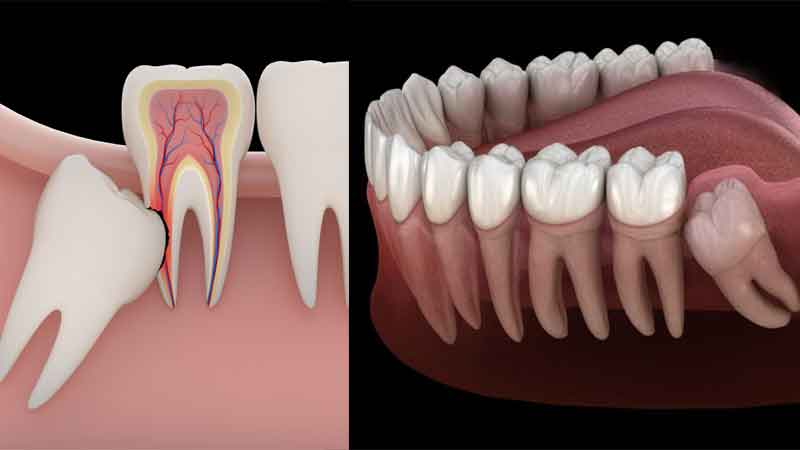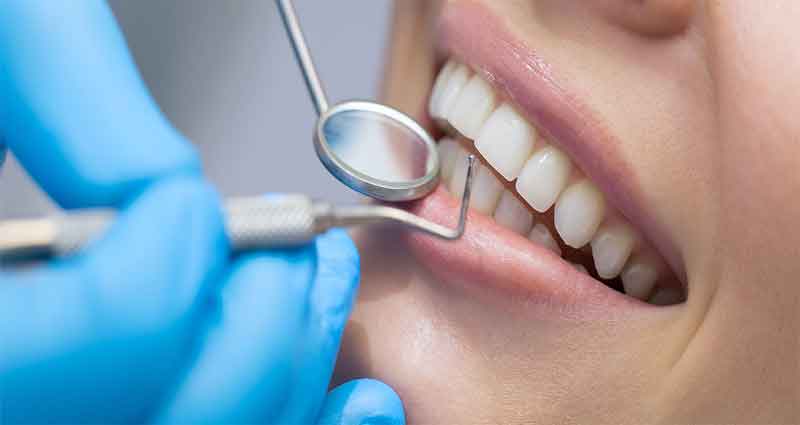
An impacted tooth is a tooth that, for some reason, has been blocked from breaking through the gum. Sometimes a tooth may be only partially impacted, meaning it has started to breakthrough. oftentimes, impacted teeth cause no obvious symptoms and are only discovered during a routine X-ray at the dentist’s office. the impacted tooth usually happens when a tooth is stuck against another tooth, bone, or soft tissue. If an impacted tooth isn't bothering you, a dentist may recommend leaving it alone. But if it hurts or may cause problems later on, the dentist may recommend extraction surgery.
Wisdom Teeth Issues
Wisdom teeth are the last molars that usually come through during your late teens or early 20s. Wisdom teeth can cause various dental problems including the overcrowding of the existing teeth, and impaction. Impacted wisdom teeth are third molars at the back of the mouth that don't have enough room to emerge or develop normally. Issues with wisdom teeth include infection, leading to pain, difficulty chewing, and bad breath. In certain cases, wisdom teeth can lead to serious infections and swellings. If your wisdom teeth are causing problems, it is recommended that you have them removed.
Treatment for impacted tooth & Wisdom tooth
Tooth extraction surgery is usually done as an outpatient procedure and the procedure usually takes 45 to 60 minutes, and you’ll likely be put under local anesthesia. Recovery may take 7 to 10 days, but you should be able to return to work or school within a few days of having the procedure. When wisdom teeth are extracted, they are large and hence the hole where the tooth was may be stitched to help it heal. It is normal for your jaw and gum to be sore, swollen, and bleed for a few days after having a wisdom tooth out.
When the canine teeth are impacted, eruption aids may be used to get the tooth to erupt properly. Eruption aids may include braces, brackets, or extracting baby or adult teeth that may be blocking the canines. These methods are most effective when performed on younger people.
